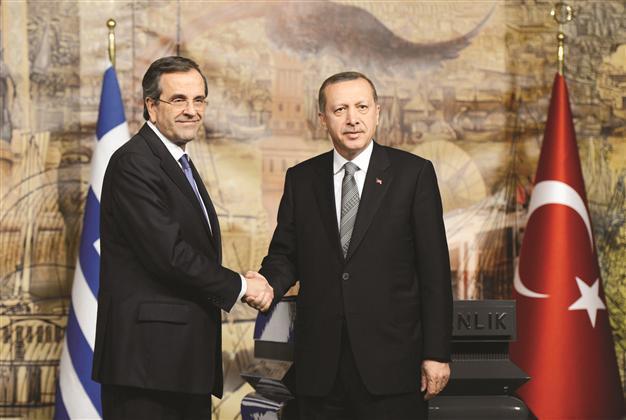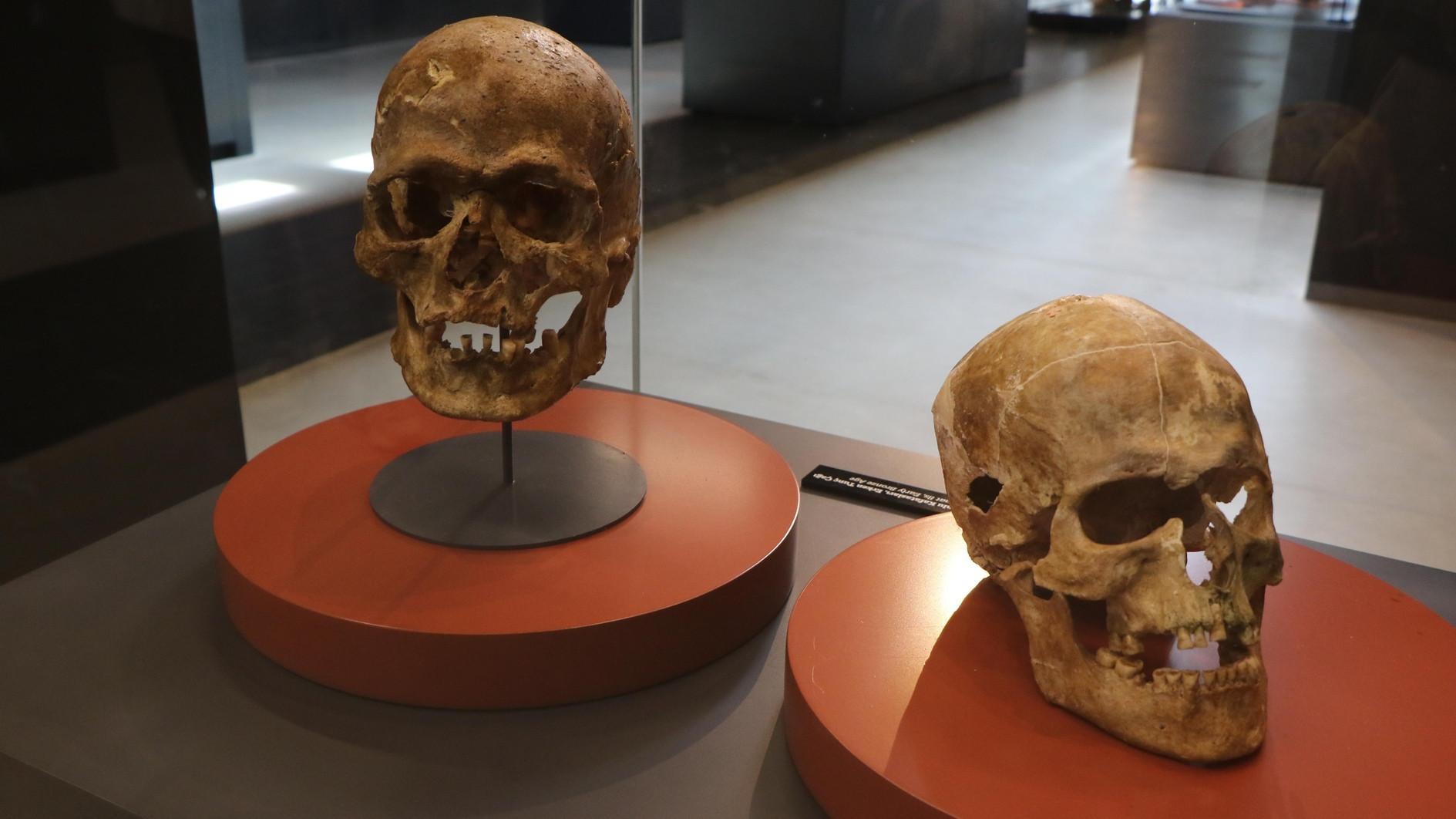Athens, Ankara seek further warming of ties to boost trade
ISTANBUL - Hürriyet Daily News

Turkish Prime Minister Recep Tayyip Erdoğan shakes hands with Greek Prime Minister Antonis Samaras in Istanbul before two hold a joint press meeting. DAILY NEWS photo, Emrah GÜREL
Turkey and Greece are set to foster their economic ties further, with both sides pleased at the state of their existing relationship, the prime ministers of the two neighboring countries said yesterday.“We have increased the trade volume between the two countries by more than 100 percent in the last decade,” Turkish Prime Minister Recep Tayyip Erdoğan said yesterday in Istanbul at the Turkey-Greece Business Forum, also attended by his Greek counterpart Antonis Samaras.
Samaras was on a one-day official visit to Turkey during which he met Erdoğan and President Abdullah Gül, before attending the forum.
The trade volume between Turkey and Greece reached $5 billion last year despite the economic crisis, Erdoğan said, adding that even that level is not enough.
“We agreed to raise the bilateral trade to $10 billion as soon as possible, and the groups to realize this - Greek businessmen and Turkish businessmen - are here today,” Erdağan said.
Greek Prime Minister Samaras was also happy with the visit. “Today is a good day for Greek-Turkish relations,” he said, adding that the two countries’ relationship was not “fully aligned” and that “careful steps” had to be taken to build trust.
“The fact we got together today is proof that Turks and Greeks can sit around the table and talk,” Samaras said.
Rifat Hisarcıklıoğlu, the head of the Union of Chamber and Commodity Exchanges of Turkey (TOBB), said the bilateral agreements would serve to overcome difficulties of tradesmen, as non-institutional areas of trade created problems for business.
$10 billion trade target
“Greek investments in Turkey reached $6.6 billion in 10 years, putting Greece the fifth-most-invested country in Turkey,” Gül said at his meeting with Samaras earlier in the day, at his residence in the Tarabya district of Istanbul.
He said the number of Turkish companies investing in Greece had also increased significantly, especially in banking and maritime affairs, adding that new cooperation opportunities on energy and tourism could be considered.
Resolution of historical political issues – most significantly the Cyprus issue - would lead to the development of even stronger economic bonds, Erdoğan also added, putting particular stress on the benefits and actual easiness of a solution, which would further develop a peaceful environment for investments and trade.
He said the price of wars and disputes was high for countries, both economically and emotionally, and his government along with Samaras’ would be able to “overcome the Cyprus issue and resign the ongoing problems to history.”
“I believe we [the Turkish government] can resolve this [Cyprus] issue with the Samaras government, which also has a strong will, by taking steps forward. I hope we will secure important results for regional peace, security and stability.”
Also touching upon the continental shelf issue, Erdoğan said the two countries had been in talks for a while and he saw no reason not to reach a consensus over controversial issues, as long as the intentions of the parties were good.
The question of oil and gas exploration in the Aegean was one of the key issues on the agenda, and both leaders made only brief references to it. Both Athens and Ankara recently sent diplomatic notes to the United Nations to complain about the other side’s stance on the issue.
Samaras said the continental shelf rights Greece had as a result of the Law of the Sea were “clear.”
Erdoğan said the two sides would be in a win-win situation if they could come to an agreement on the issue.
Erdoğan, who referred to his Greek counterpart Samaras as “my friend,” said Turkey and Greece had signed 25 bilateral agreements in Istanbul.
The new deals, which differ across a wide area of cooperation from health to culture and tourism, illegal immigration and energy, has put the number of agreements between two countries to 47 in total.
















